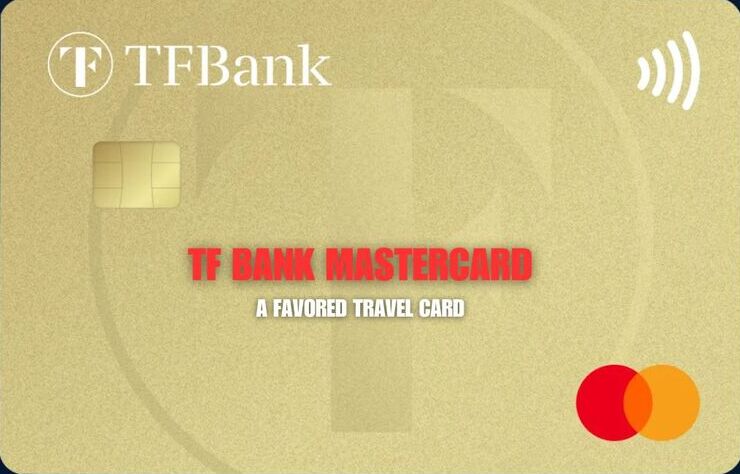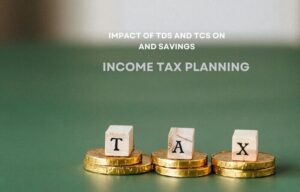TF Bank Mastercard: A Favored Travel Card

When presented with rewards credit card offers, deciding which is best will depend on how you intend to use the card, your lifestyle, and where you’ll get the greatest benefit. Travel credit cards offer some of the best perks for those who travel often or relatively frequently.
A favored option for many cardholders is the TF Bank mastercard. It’s not only one of the best travel rewards cards, but as a credit card, it has no fees, including an annual fee or foreign transaction charge, offers an extended no-interest payment period, has travel insurance to protect you as you go on holiday, and cancellation and ID theft insurances.
It’s exceptional since most travel cards come with a high annual fee due to the valuable perks offered, and most make earning these easy with the accumulation of miles or points with qualifying purchases.
You can typically receive holiday packages, flights, car rentals, accommodations, and more when redeeming these. With some issuers, you can also choose non-travel rewards like statement credits if you prefer.
Understanding Travel Credit Cards
Travel credit cards are among the most sought-after rewards cards, particularly the popular TF Bank Mastercard. This favorite has no fees and offers a plethora of benefits aside from the many travel perks.
Some travel credit cards are attached to loyalty programs with either a certain airline or an accommodation, with others earning benefits through the specific card’s reward program. You’ll need to thoroughly understand the types of cards and how they’re redeemed before committing.
In any event, the more informed you are, the greater the chances of maximizing the benefits with the opportunity to enhance your holiday travels and offset the overall expense of the excursion.
The top types of travel rewards cards include airline, accommodation, and flexible travel cards. For instance, some are “co-branded” among a couple of programs, and others have only one type.
Redeeming miles and points
The type of travel rewards card you have will decide where the miles or points need to be applied. These rewards will need to go to those loyalty programs for accommodations or airlines. In some cases, there are exceptions.
With flexible reward credit cards, you can either redeem through an online portal or transfer rewards to a travel partner that correlates with the issuer.
- The online portal
The credit card issuer will list mile or point redemption values to achieve through its website portals. Rewards can be used for travel purchases, statement credit, cashback, or gift cards. The conversion rate is usually $1 for every 100 miles or points.
Some cards will offer increased values for miles or points when making travel purchases with the online portal or provide other perks.
- Transferring to a correlating travel partner
Some cards allow the transfer of miles or points to a card’s correlating travel partner. These can include accommodation loyalty programs or frequent flyer plans. This is considered the option for getting the maximum from your rewards.
You can transfer rewards to a correlating eligible travel partner through the online portal. The timeframe for transfer can sometimes be as soon as instantly, or it can take a few days. Once transferred, it won’t be possible to bring them back to the original issuer.
- Redeeming miles and points in other ways
Instead of travel purchases, you can use miles and points for cashback, statement credit, gift cards, or merchandise, but this deems the lower value when redeeming with a travel card.
Maximizing Miles and Points with Travel Rewards Cards
Most people want the most value when redeeming their miles and points with a travel rewards card. That’s especially true if there’s a high annual fee. Fortunately, with the TF Bank Mastercard, there are no fees, including an annual fee, but with most premium travel cards, there are high annual fees.
The priority is to ensure the value you achieve through savings, bonuses, and rewards accounts for the fee. Here are tips to help you get the greatest benefit from your travel rewards card.
- Sign-on bonus
Most travel rewards cards offer a generous sign-on bonus with the requirement that you spend so much after activation and within a designated time period.
While the bonuses are usually a worthwhile incentive for signing on for a card, it’s essential to ensure the requirements with the incentive are reasonable for your holiday agenda and budget before committing to the card. You want to avoid cycling into debt to gain rewards.
- Fees
The fees attached to credit cards won’t affect the miles and points, but the charges do impact whether the card is a good fit for you. It’s wise to pay attention to each of these for the cards you’re considering, particularly the annual fee, which can be high with some travel cards.
Not all cards like the TF Bank Mastercard come with this charge, but the ones that do will range from roughly $95 up to $695. If you’re considering a travel card with an annual fee, ensure the perks, benefits, and rewards offset the charge.
- The foreign transaction charges
Some cards will incorporate a foreign transaction charge with their fees for international travel. The charge is roughly 3 percent of any purchase made while overseas. If you travel abroad often, it’s worth searching for a card without this charge.
- Compare options
You’ll want to make sure the cards you’re considering fit your needs and suit your lifestyle. That will mean comparing, weighing the pros and cons of a few choices, paying close attention to the perks, benefits, and rewards categories.
If you frequently dine out, looking for miles or points focused on restaurants would be valuable. If you rarely use rideshares, a card with these perks would be of little benefit. It’s important to look at your spending habits, and how you might use the card, before shopping for one.
Final Thought
Favored cards like TF Bank Mastercard are worth their value because there are no fees, yet it offers benefits like travel and ID theft insurance, plus an extended payment period with no interest. The effort is meant to look out for the best interest of the cardholder.
Travel credit cards have the potential to tremendously decrease your travel costs if the logistics align with your objectives and fit within your budget. Primarily, when becoming informed about travel credit cards, the priority is learning the perks, benefits, and reward program protocol to maximize these.
Ideally, any fees and charges won’t outweigh the value of the rewards, and these miles and points will coincide with your lifestyle and spending habits to get the greatest benefit when making purchases.

Pranab Bhandari is an Editor of the Financial Blog “Financebuzz”. Apart from writing informative financial articles for his blog, he is a regular contributor to many national and international publications namely Tweak Your Biz, Growth Rocks ETC.








